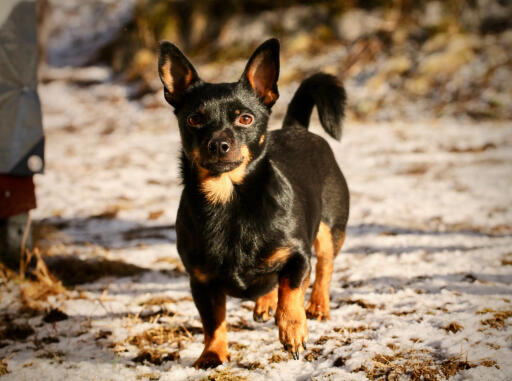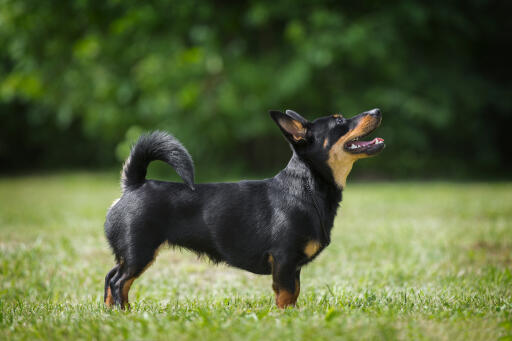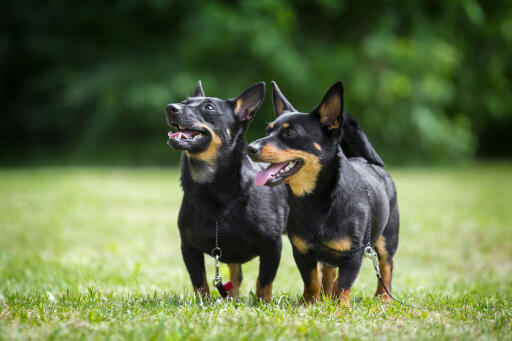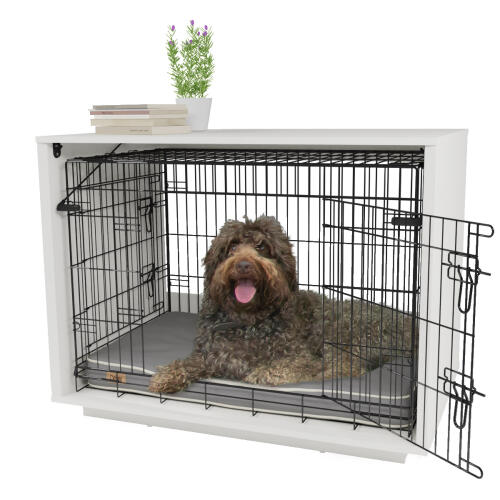Lancashire Heeler Dogs




History
The Lancashire Heeler, also sometimes referred to as the Ormskirk, originates from Lancashire, England. They have been used as a working breed for the last 150 years or so. They were used to herd and drive cattle to market, as they were small enough to nip at the heels of cattle to get them to move yet still quick enough to avoid being kicked. When not herding cows, they were excellent at catching any vermin that may be living on the farm. The breed died out when farmers stopped using driving dogs. It is thought that the modern day rendition of this breed is a cross between the Manchester Terrier and the Welsh Corgi. This combination produces a compact, striking black and tan dog. They are identical to the original Heelers.
Behaviour
Lancashire Heelers are friendly, active and alert dogs. They are good with older, more respectful children and will fit well into a family environment, if given enough exercise. Their natural herding instinct may be a problem with smaller children, as they may nip at their heels. Training can prevent this. They are very loving towards their family and get along well with visitors they kn ow. Strangers can be a bit of a problem, as they are very wary of them and may sometimes even behave aggressively towards them. Early socialization is vital in order to stop this behavior.
When it comes to training, the Heeler is intelligent but can be very stubborn. They have their own mind, and they know this. Sometimes they may not be in the mood to learn anything new and progress will be minimal. Patience is key, they’ll get there in the end. A kind yet firm approach to training will bear the best results. Play and food rewards also work well. They have a natural instinct to chase after any small, furry creatures that they spot, so any for any rodent lovers - this is not the breed for you. Because of this instinct, walking the off-leash can be a bit risky. It is best to walk them in a safe and secure area. As with all dogs, recall depends on the individual, some have very good recall whereas others not so much.
Despite the fact that they are a rather small dog, they still need a fair amount of exercise. Usually one long walk each day should do the trick, but if you feel that they are still very energetic you can play games like fetch and catch to fully tire them out. They love to run around and any sort of game that involves throwing and catching is right up their alley. They do particularly well at agility, obedience and flyball. Once fully worn out, they’ll be happy to curl up on the couch and nod off.
Their smooth coats are easy to care for, brushing a few times a week to remove dead hairs will be enough.
Health Problems
Whilst not really that prone to any major health problems, eye related problems such as Lens Luxation do sometimes occur.
Breed Details
- Status: Rare
- Life Expectancy: 12 - 15 years
- Weight: 13 - 18 lbs
- Height: 10 - 12"
- Rare: No







